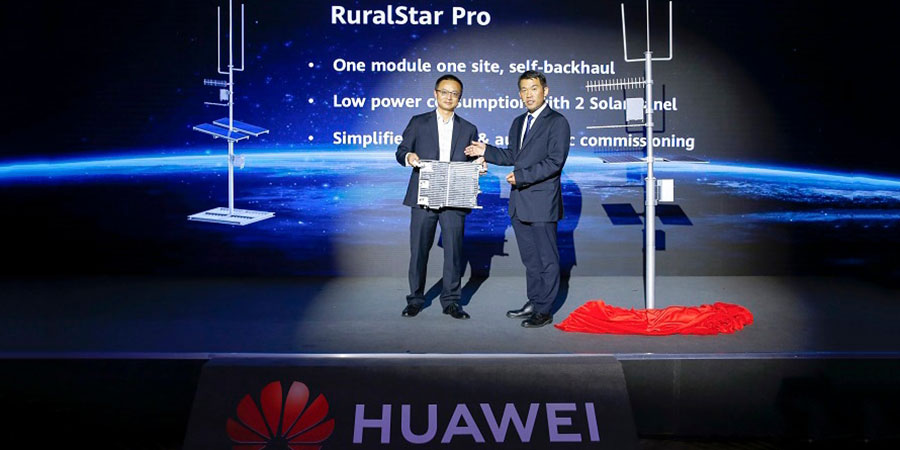At MWC Shanghai 2021, Huawei announced that its innovative RuralStar Pro solution has been commercially rolled out in Guizhou, China. This solution is designed in accordance with the integrated access and backhaul (IAB) model, and promises to significantly lower the deployment costs associated with providing voice and mobile broadband services for remote villages.
David Guo, President of Huawei Wireless Network Site Product Line, introduced RuralStar Pro in detail at the event. Guo noted that 600 million people in the world still have no access to mobile connectivity, and the RuralStar Pro solution could provide connections for these uncovered areas at the optimal cost and fastest speed. This solution integrates a baseband unit (BBU), a remote radio unit (RRU), and a relay device into a single module, enabling one module one site. The power consumption of each site is less than 120 W. The head of a village can deploy it independently and have an engineer configure it remotely. Guo says that this significantly reduces the end-to-end cost of deployment, and a return on investment can be expected within three years.
The solution has been commercially rolled out in Maopo Village of Guizhou Province, greatly advancing the village's digitalization. The valley where Maopo Village is located is often foggy, meaning that microwave solutions cannot be used there, and the cost of laying optical fiber on winding mountain roads is too high. With RuralStar Pro, the installation of a base station and the provisioning of LTE and VoLTE service can be completed in two hours. The coverage rate in the village is now 85% and the downlink speeds reach 30 Mbps.
Abraham Kofi Asante, CEO of the Ghana Investment Fund for Electronic Communications (GIFEC), also appeared at MWC Shanghai to speak about the organization's rural network deployment plan. GIFEC plans to work with Huawei to deploy more than 2,000 RuralStar sites. It's estimated that 3.4 million people in 172 rural areas will benefit from this plan, and Ghana's mobile coverage rate will increase from 83% to 95%. This, says Asante, will give an enormous boost to the local economy. In this project, GIFEC will be responsible for construction and local operators will run the service. Profits will be split between them. This project is running smoothly now, and the over 400 deployed RuralStar sites are already generating revenue, and a return on investment is expected in less than three years.
Fatogoma Aristide Sanon, Deputy CEO of Orange Guinea, also shared his country's digitalization strategy. He noted that, during the pandemic, digitalization has been crucial in all aspects of life, including the economy, education, and healthcare. Orange is committed to digital inclusion for everyone in Guinea.
Guo concluded his speech by emphasizing that, in the three years since its initial launch, Huawei's RuralStar solution has been continuously evolving, and that Huawei is committed to sustained innovation in order to bring digital to every person, home and organization.





